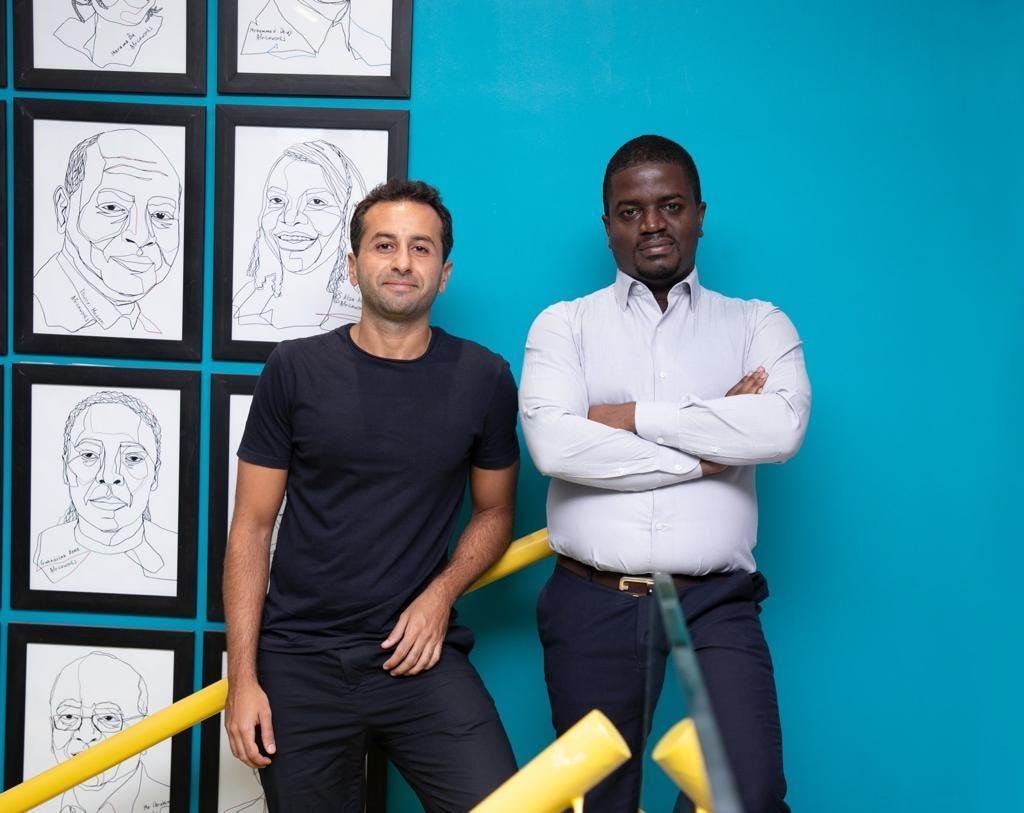Djamo, an Ivory Coast-based Y Combinator startup, has raised $14 million in funding from the prestigious accelerator, as well as three lead investors — Enza Capital, Oikocredit, and Partech Africa — and additional participating investors such as Janngo Capital, P1 Ventures, Axian, and Launch Africa.
The $14 million in funding, which it claims is the largest-ever equity round for an Ivory Coast business, will enable the startup grow into two more Francophone African nations before the end of next year and extend product offerings to include investments and lending.

Why The Investors Invested
Since its inception, the firm has gained significant traction. It presently has over 500,000 customers, a more than fivefold growth from Djamo’s 90,000 customers as of February 2021.
According to the founders, the finance platform has processed over $400 million since its debut. Djamo is also seeing 20% to 25% month-on-month revenue increase, thanks to a pricing plan change that includes a free option and two premium choices with various services: $2/month and $3.5/month.
Tidjane Deme, the general partner at Partech Africa, speaking on the investment, said, “Francophone Africa offers a large integrated market, with [a] fast-growing demand for frictionless services from a new cohort of digital-native young adults. We are excited to join forces with high-caliber local investors who bring sector and regional expertise to enable Djamo to unlock this opportunity.”
A Look At What The Startup Does
Djamo’s software provides for interoperability between banks and mobile money, which means that its users in Ivory Coast can send money from their bank accounts to mobile money wallets and back; it has exploited this feature to construct a full suite of financial services.
Djamo’s first product is a Visa-powered debit card that allows customers to make online purchases from companies like Amazon, Alibaba, and Netflix. Other products include virtual accounts for peer-to-peer transactions, a platform for receiving salary, and an autosaving product that provides financial advise to customers. Comparable products in Africa include Kuda, Telda, PiggyVest, TymeBank, and Koa.
Read also : A New $11.6M Fund Launched By Vumela In South Africa, To Support Businesses
“Before Djamo, it was a real challenge for an average customer to receive salaries digitally because they weren’t integrated into the banking system,” CEO Bourgi said. “We found the right partner to launch that product and any company can pay salary to employees with a Djamo account. When you look at Djamo, alongside other products, we want customers to be able to better manage their money and help them plan for their future. We’re not necessarily trying to digitize cash like mobile wallets. We are here to work on the personal finance side.”
Customers perceive a lot of value in the many use cases. According to Bamba, Djamo’s chief product officer, the fintech is still relying on word of mouth to spread across the Ivory Coast.
“In our region, users pay amongst the highest fees in the world but do not always receive adequate service in return and that can be extremely frustrating. The one thing that we want to achieve is to offer a product where customers get real value for their money,” said the CPO. “The app has been growing organically like crazy and to get such numbers in a market like this within a short period, is proof that we’re nailing the overall user experience and building something very relevant for users.
According to the founders, Djamao alternatives are 80% cheaper than other bank accounts offered by financial institutions in Ivory Coast, including microfinance banks, which Djamo regards as direct competition owing to their use of digital channels to deliver financial services.
Read also : South Africa’s Biggest Cellphone Dealer is a Clothing Retailer
According to Bourgi, 60% of Djamo customers had never used a Visa debit card before to joining the site. It’s a feat the CEO is proud of and sees as critical to Djamo’s goal of making financial services available to the masses, including those outside the Ivory Coast.
The company concentrates on French-speaking markets, where less than 25% of adults have a bank account. One explanation for this is that banks prioritise wealthy consumers and those deemed advantageous for business. However, as banks fell short, mobile money from the region’s telcos filled the void, and their wallets have reached more than 60% of the population in the last decade, demonstrating how many millions of French-speaking natives were hungry for financial services.
Djamo consumer finance Djamo consumer finance
Djamo consumer finance
Charles Rapulu Udoh

Charles Rapulu Udoh is a Lagos-based lawyer, who has several years of experience working in Africa’s burgeoning tech startup industry. He has closed multi-million dollar deals bordering on venture capital, private equity, intellectual property (trademark, patent or design, etc.), mergers and acquisitions, in countries such as in the Delaware, New York, UK, Singapore, British Virgin Islands, South Africa, Nigeria etc. He’s also a corporate governance and cross-border data privacy and tax expert.
As an award-winning writer and researcher, he is passionate about telling the African startup story, and is one of the continent’s pioneers in this regard. You can book a session and speak with him using the link: https://insightsbyexperts.com/view_expert/charles-rapulu-udoh
